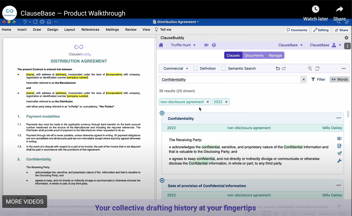
Let’s consider two use cases for generative artificial intelligence (ChatGPT and the like).
For Blogging
I think of myself as a writer. I have no delusions of grandeur, but I do have the privilege of writing stuff that’s original, whether it’s polemic or scholarship. So I have no interest in using AI for my blogging. AI absorbs what’s out there and regurgitates, on request, its own remix. There’s no way it could help me catch my lightning in a bottle.
But the world of blogging and other social-media posting is diverse, with people writing on many topics for many reasons. I suspect that many of those doing so aren’t natural writers but feel they need to sling “content” to capture some attention. For them, it must be a real challenge to keep coming up with stuff that’s halfway engaging. You’re entitled to seek help wherever you can find it, and AI would seem an obvious source of help, but you can expect the results to be generic.
But I can't speak with confidence for anyone other than me. Perhaps Kevin O'Keefe or someone else can point to instances of AI making someone's blog better or at least allowing them to keep blogging.
For Contract Drafting
What about using AI for contract drafting? As a task, contract drafting is as narrow as the world of blogging is broad. Contracts are precedent-driven—transactions of a given kind resemble each other, and we’ve long drafted contracts by copy-and-pasting from other contracts. Furthermore, contract language is limited and stylized—you’re stating rules governing a transaction, not writing the great American novel.
So it should be plausible to enlist the help of AI to come up with what you should say in a given contract. But that turns out not to be the case.
For one thing, thanks to generations of copy-and-pasting, on faith, from precedent contracts and templates of questionable quality and relevance, and thanks to lawyers’ fondness for redundancy and hair-splitting, mainstream contract drafting has long been a stew of archaisms, bloat, bollixed verb structures, ambiguity, and other glitches. If you train AI on contracts, you have no alternative but to feed it mountains of that kind of dysfunction—currently there exists no secret stash of reliable contract language. It follows that AI will regurgitate that dysfunction. I did a couple of experiments that confirmed as much, then I lost interest.
If you're regurgitating that kind of dysfunction the old-fashioned way—by cranking the handle of the copy-and-paste machine—you might appreciate a helping hand from AI. Your quality might even improve, from wretched to mediocre. But if you’d like your contracts to be clearer, more concise, and more relevant than what mainstream contract drafting has to offer, AI won’t get you there. (For more about that, see this 2022 blog post.)
And there’s a second reason why AI should fall short. Because contracts are precedent-driven, and because contract language is limited and stylized, we have a far more reliable and far more straightforward alternative to AI, namely document assembly.
To create contracts using document assembly, you present the user with choices expressed in an interview. After the user makes their choices, the system assembles preloaded contract language that reflects those choices. That offers a way to make contracts optimally clear, concise, and relevant. If they had a choice, no rational person would opt instead for AI randomness.
But we haven’t been offered that choice. Building a contracts document-assembly engine is hard, because compiling the contract language is hard. Because automating it is hard. Because it can be expensive if you’re creating a system just for your organization. And because people don’t like change.
But those problems can be overcome if you build templates for the broader marketplace. That’s what Adams Contracts is doing. (For more about how Adams Contracts reduces the barrier to document assembly, see this blog post.) That’s why you now have a choice between document-assembly contracts and AI randomness.
Obviously, I’ve made my choice. I invite you to join me.
***
(The image at the top of this post is Lightning In A Bottle Trilogy (3/52) by Simon & His Camera (2013) / Flickr / CC BY-ND 2.0.)

